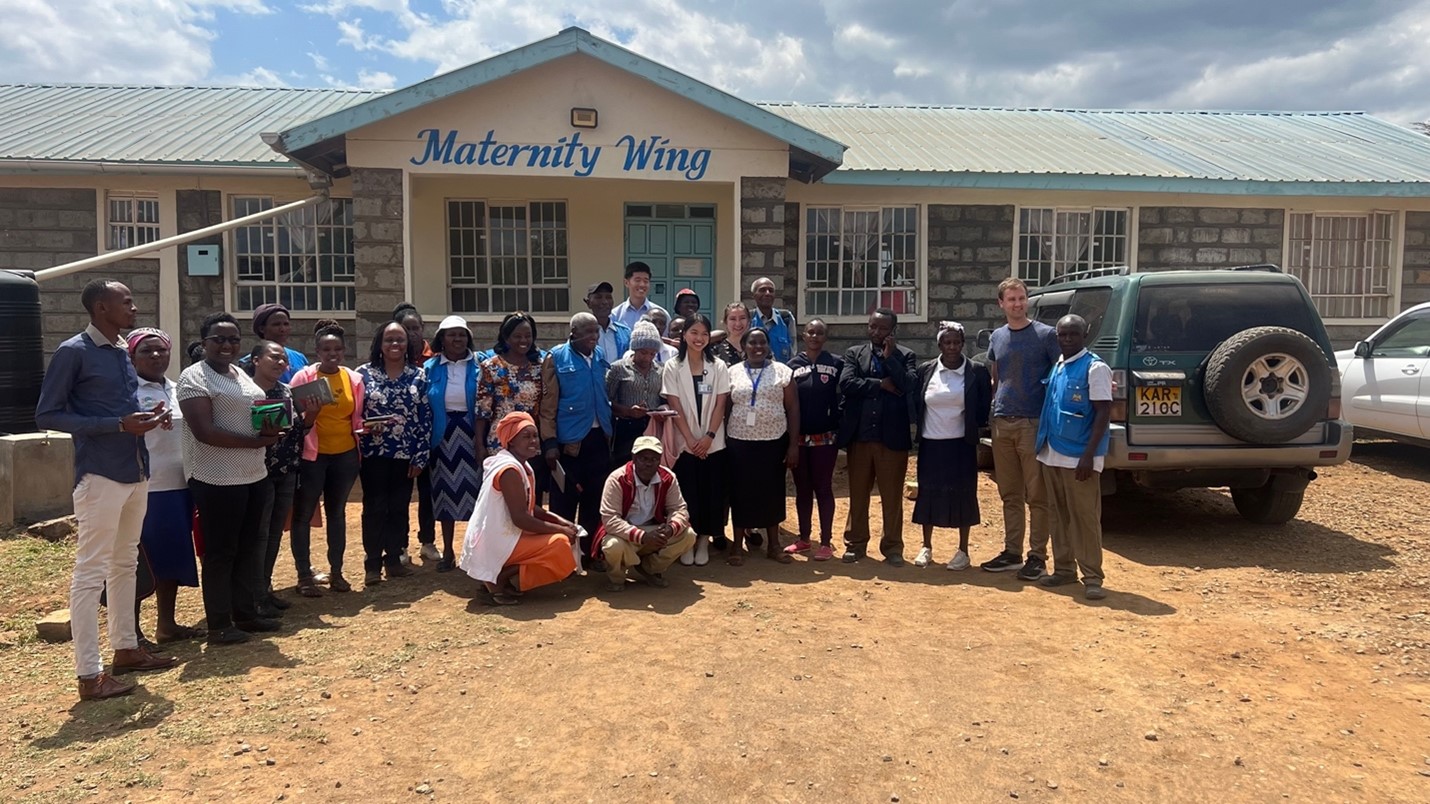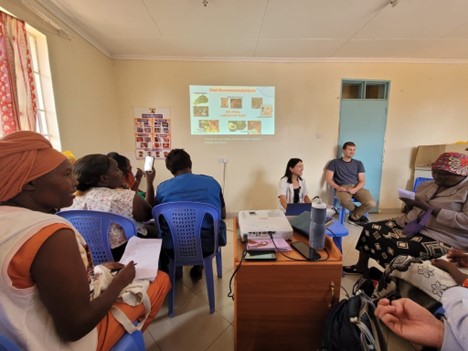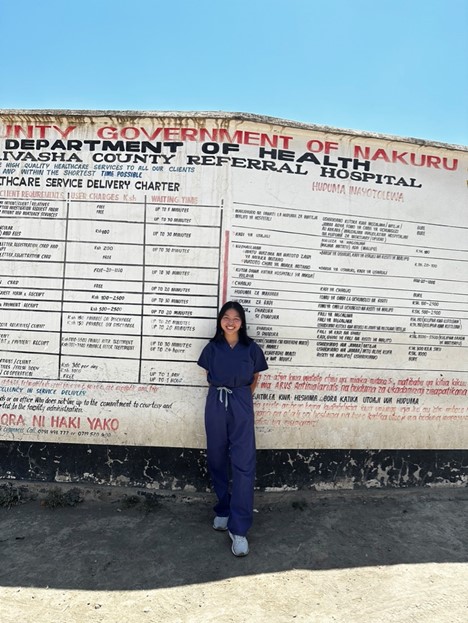Name: Catherine Pham, MS2, Seattle
Project: Improved Diabetes & Cardiovascular Education Outcomes Among Community Health Promoters in Mai Mahiu, Kenya.
Program: “I participated in the Global Health Immersion Program within the UW Department of Global Health, where I conducted a community health project in Kenya.”
The challenge: “In my first few weeks, I completed a community needs assessment. I learned about the rising prevalence of diabetes and cardiovascular-related complications. In Kenya, the rise of non-communicable, notable diabetes, is driven by urbanization and unhealthy lifestyles, contributing to the burden of cardiovascular disease (CVD).”
“The healthcare system, primarily focused on infectious diseases, is ill-equipped to handle the diabetes epidemic. Community health promoters (CHPs) are crucial in low-resource settings to provide education and disease management, yet they often lack training on diabetes and CVD.”
The project: “My project aimed to significantly improve CHPs’ knowledge of prevention, management, and detection of diabetes and its comorbidity with CVD with an educational intervention, ultimately reducing disease burden and improving health outcomes in Mai Mahiu, Naivasha Sub-County, Kenya.”
“I utilized a quasi-experimental design including registered CHPs in Mai Mahiu. Participants completed a pre-test and post-test survey based on the study objectives with an educational intervention conducted in between. Responses were recorded using a Likert scale and converted into numerical values (1-5) that represented knowledge scores for assessment of post-intervention outcomes.”

Results: A total of twenty-five CHPs participated. After a diabetes and CVD educational program, post-test scores (M = 4.77) significantly increased from pre-test scores (M = 3.29), indicating statistically significant improved knowledge (paired t-test: t = -15.81, df = 6, p = 4.06 E-06). Qualitative feedback included increased confidence in CHPs’ ability to educate, detect, and manage diabetes and CVD. Educational brochures were distributed to CHPs to aid local health campaigns.
Overall, this project increased awareness and knowledge of uncontrolled diabetes and comorbid CVD risk among CHPs in Mai Mahiu, demonstrating the effectiveness of targeted education. It also established a foundation for future training sessions, enhancing CHPs’ role in diabetes care and the prevalence reduction of CVD complications. Further training and increased funding from the Government of Kenya are essential to sustain CHPs’ community outreach efforts. Empowering the community through education remains valuable for decreasing the prevalence of uncontrolled diabetes, reducing CVD risk, and improving overall quality of life.

Reflections: “It was meaningful to connect with local CHPs in Mai Mahiu and appreciate the value of education to empower communities to overcome barriers to accessing healthcare and promote individuals to embrace autonomy in their health. My time spent at the Naivasha Sub-County Referral Hospital was also an impactful learning experience of understanding how global health partnerships can be conducted ethically, while observing first-hand the challenges of practicing medicine in low-resource settings.”
Thanks: I would like to thank Douglas Bosibori for his mentorship, the Naivasha Sub-County Referral Hospital staff for their involvement, the Mai Mahiu Health Unit for making this study possible, and Dr. Collette Abbott, Kirsten Greene, and the Department of Global Health for their efforts to make this opportunity possible!

